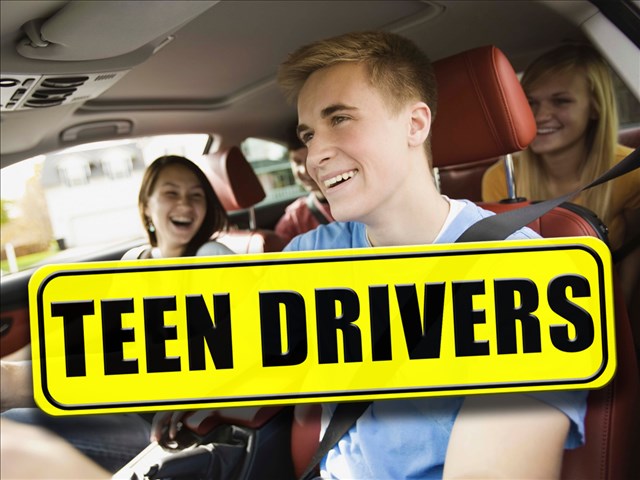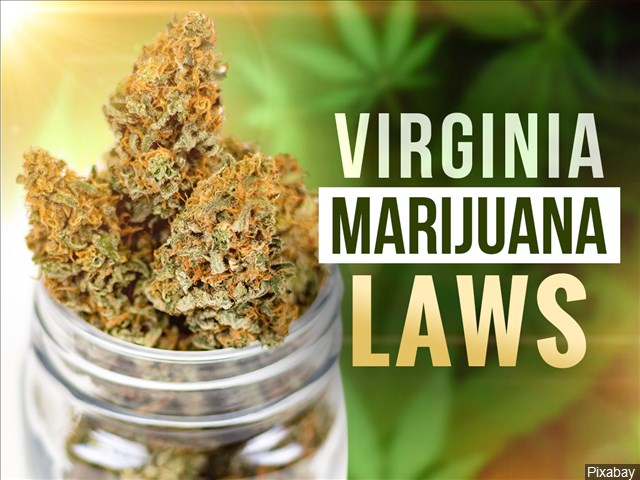
Traffic accidents involving teenage drivers are down this year, but the number of people killed in those crashes is up. AAA Mid-Atlantic crunched the numbers and finds that Virginia accidents involving teen drivers through mid-October are down close to 30% over recent averages, but fatalities in those crashes are up about 9%. AAA says this year’s trend of more speeding coupled with teen driver inexperience appears to play a big role in the latest higher numbers. WFIR’s Evan Jones has the story:
AAA NEWS RELEASE: RICHMOND, VIRGINIA (Thursday, October 22, 2020) – The number of people on Virginia’s roadways being killed in crashes involving teen drivers is up this year, despite teen drivers being involved in far fewer crashes overall, given several months of little to no traffic on our roadways.
This, according to an analysis by AAA of DMV Virginia Crash Data for the previous five years and the preliminary crash data for this year. Between 2015 and 2019, through Mid-October, Virginia saw an average of 14,445 crashes a year involving teen drivers, as compared to this year when there have been 9,971 crashes involving teen drivers over the same time period. That’s a drop of 30%, yet, the number of fatalities (55) through October 16th, involving a teen driver is higher than the average number of fatalities involving teen drivers in the past five years (51).
“We know that, in general, there has been a sharp increase in speeding this year. Add to that the inexperience of teen drivers and it is no surprise that these numbers tell a tragic story,” says Morgan Dean, spokesperson for AAA Mid-Atlantic. With that in mind, AAA is reminding parents to take every opportunity to talk to their teens about the risks of the roadway. This week is National Teen Driver Safety Week, and a great reason to initiate those conversations.
DMV Virginia Teen Crash Data as of 10/16:
-
55 people have been killed this year in crashes involving a teen driver(Up 7 % this year over the same time period in 2019)
-
9,971 crashes this year involving a teen driver(Down 27% from 2019 when there were 13,825 crashes during the same time period)
-
5,201 injuries in teen driver involved crashes this year(Down 28% from 2019 when there were 7,304 during the same time period)
“Motor vehicles crashes are the leading cause of death for teens between 15 and 18 years old in the United States ahead of disease, injuries and violence,” Dean adds.
Virginia DMV Tips for Teen Drivers:
-
Reject Ejection. Wear your seat belt to prevent ejection, which almost always means death.
-
Save Your Driver. Drivers are twice as likely to die in frontal crashes when back-seat passengers are unbuckled.
-
Sleep Nine. Teens need at least nine hours of sleep, which allows you to stay alert while driving.
-
Stay Sober. Alcohol use by people under 21 is prohibited in Virginia. The penalties for Virginia’s “zero tolerance” law regarding teens and alcohol include losing your license for a year, and fines or community service. Alcohol and illegal drugs slow reaction-time and distort reality, making you think you’re driving well when you’re not.
-
Check Your Friends. When lives are at stake, speak up. Always ride with sober drivers, always buckle up and insist everyone else buckles up.
-
Use Your Head. Not buckling up, speed, inexperience and alcohol are reasons for fatalities and serious injuries in single-vehicle crashes, the most common type of crash involving teens.
-
Respect Role Models. When first learning to drive, respect the ground rules your parents and caregivers set and stick to them. Pay attention to the advice from experienced drivers.
-
Keep Your Distance. Keep four seconds of following distance between you and the vehicle in front of you. Tailgating, speeding and underestimating dangerous situations are some of the main factors in teen vehicle deaths.
-
That Text Must Wait. Texting while driving is prohibited for all drivers in Virginia, no matter their age.
-
Focus on Driving. Driving is a complex task and requires the driver’s full attention. Examples of distractions are blasting the music, loading up your car with friends and using your phone, which is illegal in Virginia for those 18 and younger.
“Parents can be the biggest influencers on the choices a teen makes behind the wheel,” says Dean. “That’s why it’s so important to talk with them.”
AAA Offers Teen Safe Driving Tips for Parents
-
Have the Talk. Talk with teens early and often about abstaining from dangerous behavior behind the wheel, such as speeding, impairment and distracted driving.
-
Do As I Do. Teach by example, and minimize distractions and other risky behavior when driving.
-
Make A Deal. Establish a parent-teen driving agreement that sets family rules for teen drivers.
-
Don’t Treat Them Like a Chauffeur. Don’t take the same route twice so the teen driver can see different scenarios on the road. Also have them drive in different conditions(rain, fog or traffic)
-
Put In The Time. Conduct at least 45 hours(15 of which must be after sunset) of parent supervised driving practice with the teen.(This is the number of practice driving hours required by Virginia for a teen to be eligible for a provisional driver’s license)
To support parents in conducting practice driving sessions during COVID-19 and beyond, AAA is providing a free four-page guide to help parents coach their teens on how to drive safely.
The “Coaching Your New Driver – An In-Car Guide for Parents” AAA ParentCoachingGuide 2020 offers behind-the-wheel lesson plans, including a variety of “DOs and DON’Ts” to make the learning experience as helpful as possible. For parents, the guide can be beneficial as they coach their teens on a variety of routes, building on their formal behind-the-wheel training.
TeenDriving.AAA.com has a variety of tools to help prepare parents and teens for the dangerous summer driving season. The online AAA StartSmart Parent Session also offers excellent resources for parents on how to become effective in-car coaches as well as advice on how to manage their teen’s overall driving privileges. Teens preparing for the responsibility of driving should enroll in a driver education program that teaches how to avoid driver distraction and other safety skills.



